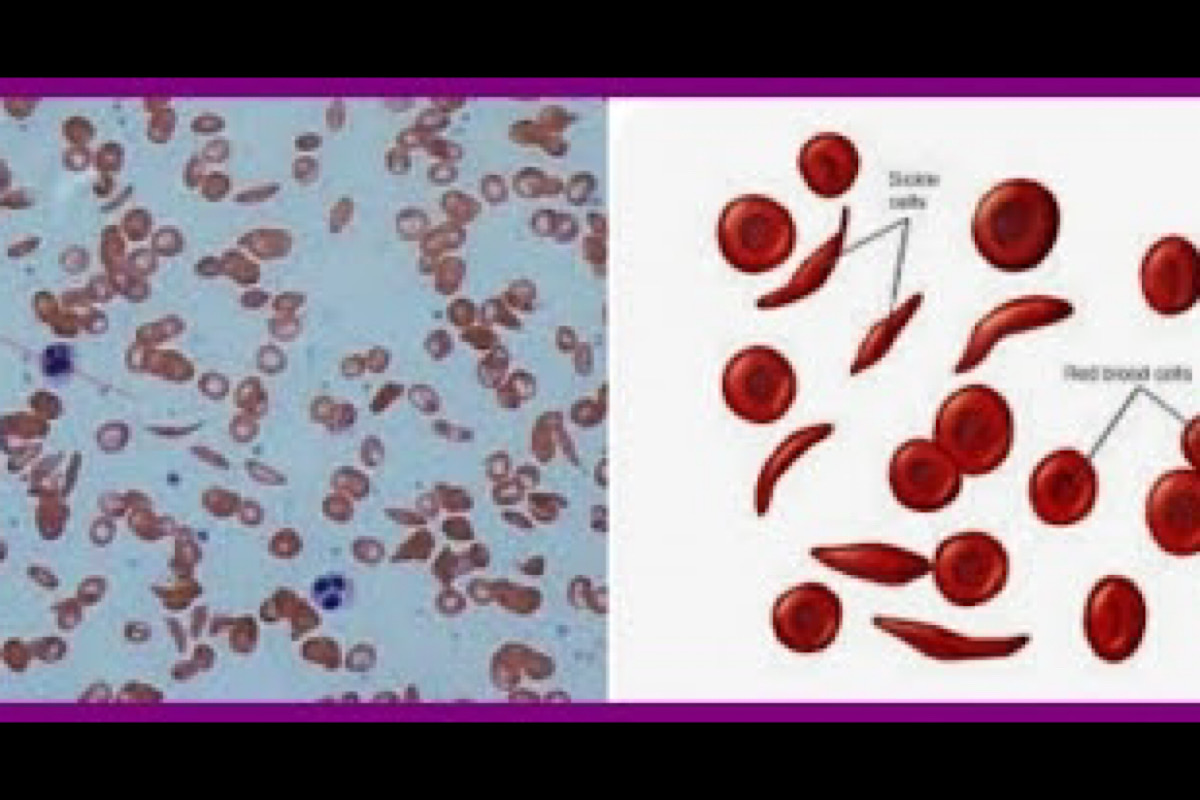Karnataka Congress MLA Ravikumar Gowda says Rashmika Mandanna “disregarded Kannada”
Recently, Rashmika's statement about being from Hyderabad at an event created controversy and sparked objections. Details inside.
Sickle Cell Disease (SCD), a complex condition that hits individuals physically, emotionally, can be challenging to not just the patients but also to their families and caregivers.

Representation image (Photo:IANS )
Sickle Cell Disease (SCD), a complex condition that hits individuals physically, emotionally, can be challenging to not just the patients but also to their families and caregivers.
Every year June 19 is observed as Sickle Cell Disease day with a goal to increase public knowledge and an understanding of the disease, and the challenges it brings along.
Advertisement
According to Dr Ashish Dixit, Consultant – Haematology, Haemato Oncology and Bone Marrow Transplantation, Manipal Hospital Old Airport Road, Bengaluru, SCD is an inherited blood disorder that affects millions of people worldwide.
Advertisement
It is more common in individuals of African, Middle Eastern, Mediterranean, and Indian descent. This condition can cause severe health complications and significantly impact the quality of life for those affected.
SCD, he says, is a complex condition that affects individuals physically, emotionally, and socially. Increased awareness of disease and improving access to quality healthcare are vital in improving the lives of the patients and helping them thrive in their communities, says Dr Dixit.
“The altered shape of red blood cells in SCD can cause them to become trapped and block blood flow, leading to various symptoms and complications. The symptoms and complications of SCD can vary widely from person to person. The most common symptom is pain, known as sickle cell crisis, which can occur in any part of the body and it can be debilitating and may require hospitalisation.
Other symptoms may include fatigue, shortness of breath, delayed growth, frequent infections, and jaundice (yellowing of the skin and eyes). SCD can also lead to severe complications, such as stroke, acute chest syndrome (a condition resembling pneumonia), organ damage, and vision problems,” he says.
Additionally, managing SCD involves maintaining a healthy lifestyle, staying hydrated, avoiding triggers, and receiving regular medical care. Living with SCD can present significant challenges for both individuals and their families. Regular medical care, monitoring, and self-management are essential to prevent complications and ensure overall well-being. Support from family, friends, and the community plays a vital role in providing a nurturing environment for individuals with SCD, he says.
Dr Mallikarjun Kalashetty, Consultant – Haematology, Haemato Oncology and Bone Marrow Transplantation, Manipal Hospital OldAAirportARoad says, “Sickle cell disease (SCD) is an inherited red blood cell disorder characterised by abnormal hemoglobin that causes red blood cells to become abnormally shaped and rigid leading to various complications. Over the past decade, significant progress has been made in the diagnosis and management of SCD, improving the quality of life for individuals living with the condition.
“Sickle cell disease is easily diagnosed by routine blood tests, including haemoglobin electrophoresis. Recent advances in genetic testing have enabled more accurate and early identification of SCD. Prenatal testing and carrier screening have become more easily accessible, allowing parents to make informed decisions. We can also now routinely carry out new-born screening leading to early detection and prompt intervention.
In conclusion, the diagnosis and management of sickle cell disease have witnessed remarkable advancements in recent years. Early diagnosis, improved therapeutic options, and comprehensive care approaches have contributed to better outcomes and an enhanced quality of life for individuals affected by SCD. Ongoing research and the development of novel therapies continue to hold promise for further advancements in the field,” Dr Kalashetty explains.
Advertisement